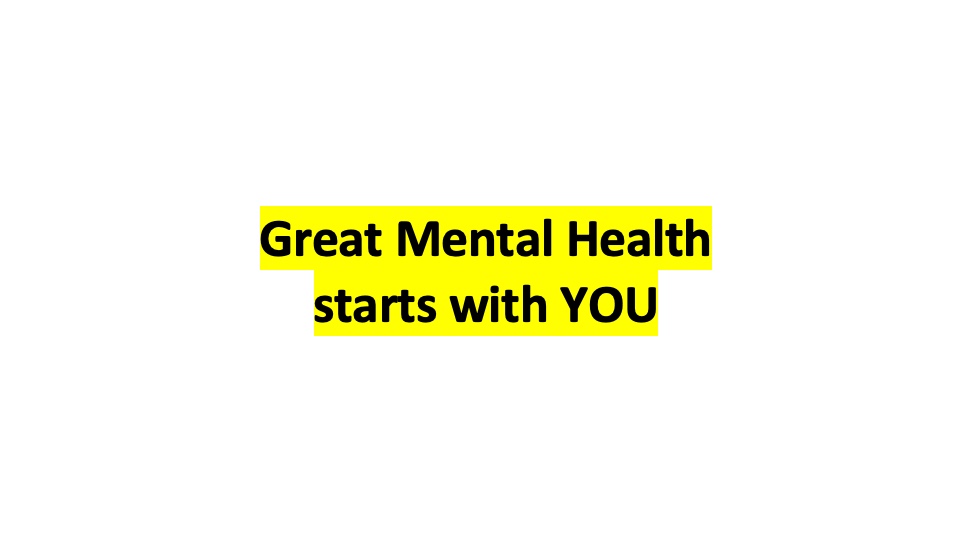With 1 in 4 people experiencing a Mental Health problem every year, Mental Health issues (which can take a very wide range of forms) are becoming more widely recognised, diagnosed and supported. But that’s not enough.
I have created this ‘Great Mental Fitness’ Interview Series to leverage my own experiences of mental illness and burnout recovery with other people’s experiences to help others. My wish is to help people recover from it and achieve great mental fitness, or better yet to prevent it ever happening to themselves or others they are responsible for.
We can make a positive difference through improving awareness of what poor Mental Health looks like, sharing best practice on how to create the best possible Mental Health for ourselves and those we are responsible for at home and in the office.
This week I am delighted to share my interview with Garry Smith. Garry is a highly experienced business growth advisor, co-author on the highly rated business scale up advice book ‘Creating Business Advantage’ and business school lecturer.
DW: “Garry, from your experiences, how can we notice if someone is struggling with Mental Health?”
GS: “The signs are not always obvious. There is still a stigma about admitting that one is not coping, or becoming stressed, with a particular situation.
If you know somebody even reasonably well there will be changes in their patterns of behaviour, how they respond to certain types of questions, and how they dress or express themselves.”
DW: ”Thank you Garry. How would you describe the common causes of poor Mental Health?”
GS: “Poor Mental Health, like Physical Health, is not one state – it is progressive. It is often caused by an incident which is outside of the “norm” for that individual.
The first step into poor Mental Health is to either ignore the incident and brush it away as insignificant or, at the other extreme, to slide very quickly into a feeling of powerlessness”
DW: “How could I help myself or others with Mental Health issues?”
GS: “The first step is to be honest by recognising and accepting that something is not ‘right’. The second, bigger step, is to seek help – even if that is going down the pub with a trusted mate and expressing how you feel.”
DW: “How do you think the media portrays Mental Health?”
GS: “I think that we are on a pendulum swing towards how the media portray Mental Health. Not so long ago Mental Health was either you were a lunatic or otherwise needed a “good kick up the arse”.
Currently the pendulum has swung to the other end of the swing: Poor Mental Health is still portrayed as some kind of illness or weakness in which we should all express our sympathy and get the “patient” medical support.”
DW: “What do you find is your greatest obstacle when trying to help others with their Mental Health?”
GS “The greatest obstacle of all is overcoming pre-conceptions that we should all be invincible – that poor mental health is a failing. That can start the spiral just in itself.”
DW: “Do you always have an intended outcome when working with a Mental Health case?”
GS: “My intended outcome is irrelevant. It is the outcome for the subject person. Maybe, their outcome is too ambitious in one step and it could be tempering that ambition into taking smaller successes along the way.”
DW: “What is the cost of stress-related illness, both physical and mental, to an organization?
GS: “Immeasurable! But always negative. Lost productivity, creativity, response, and, yes, money. From a HR (Human Resource) perspective, there can be a significant increase in turnover, lack of motivation, recruitment costs, training expense etc…”
DW: “What could leaders do for employees in terms of strengthening Mental Health and driving great Mental Fitness?”
GS: “The thing they shouldn’t do is to create an obvious Mental Health Programme or depository. It needs to be part of Business as Usual and should be integrated into other disciplines, e.g. Mentoring.”
DW: “How important is it to have a system in place to measure productivity at work, and how can one tell if this production level is being affected by Mental Health?
GS: “Poor Mental Health is a Waste. Like all waste it needs to be identified, quantified, the cause identified and then rectified.”
DW: “How important is it for an organization to have a genuine policy in place for Work-Life balance and employee wellbeing?”
GS: “There is no such thing as Work-Life Balance. If there is then it changes not just one person against another but within one person it changes. It is understanding when the balance point has to change that we can make the adjustments and keep ourselves positive.”
DW: “How can upper-management accommodate those with Mental Health issues at the workplace?”
GS: “Understand the problem and then the solution. This is not the “soft” option. Mental Fitness and Resilience make the business strong. It is a positive action to support those with difficulties towards a better state. We have no problem with training to improve skill – what is the difference?”
DW: “What resources can a company provide for those at risk or already struggling with Mental Health?”
GS: “We are ALL at risk – even those perceived as happy and most successful. The answer is a summation of previous answers.”
DW: “Thank you Garry – I fully agree with your point here. I was relatively happy and felt successful, and then like a hurricane, an unexpected personal tragedy took me off my feet.
Garry, I really appreciate your time as always, and I have been honoured to have you as a friend and colleague for some 8 years now. You were the first person to join me in ABP when I started it in 2012! What a few years we’ve both had, personally and professionally! Thank you – for everything.
To our readers – we hope you enjoyed this read, and hope it gives you a higher drive to action in helping yourself and others either recover from or ideally avoid poor Mental Health and illness completely. Poor Mental Health really can kill and at least seriously hamper or damage many happy lives, careers and businesses.
If anything, we hope you do more about it from this read. Even just sharing this interview on your social media channels could change a life for the better, or even save a life. Every little helps.
Watch out for our next interview to be shared in the coming weeks with a former Olympic champion and NHL star. I can’t wait to show you that one…”






